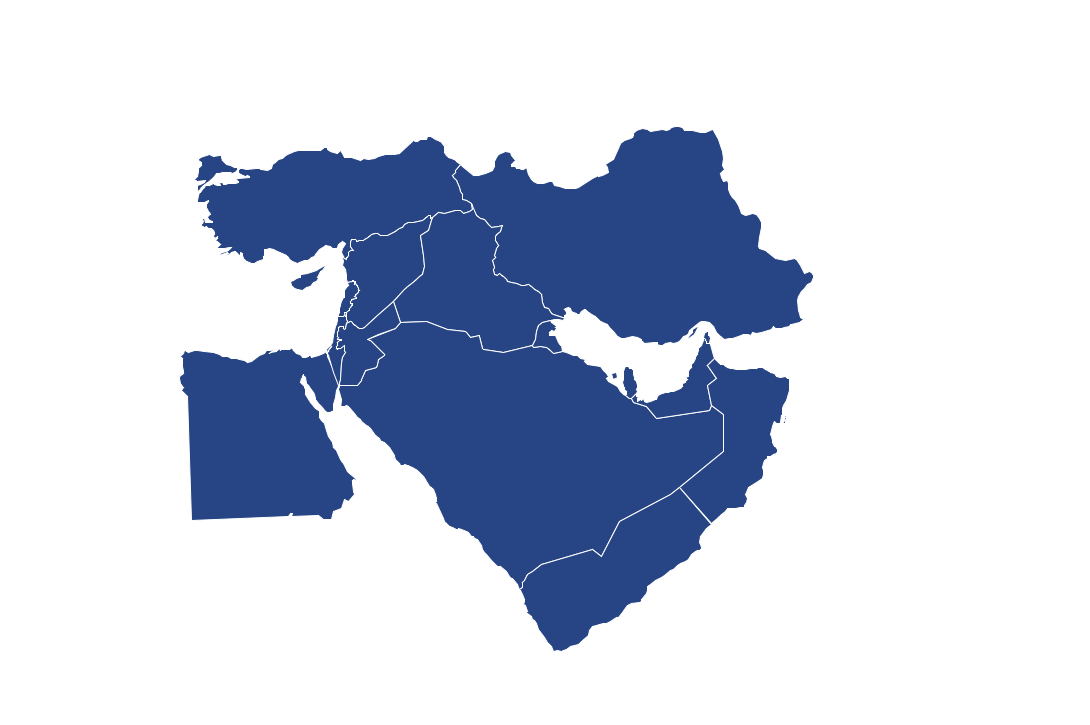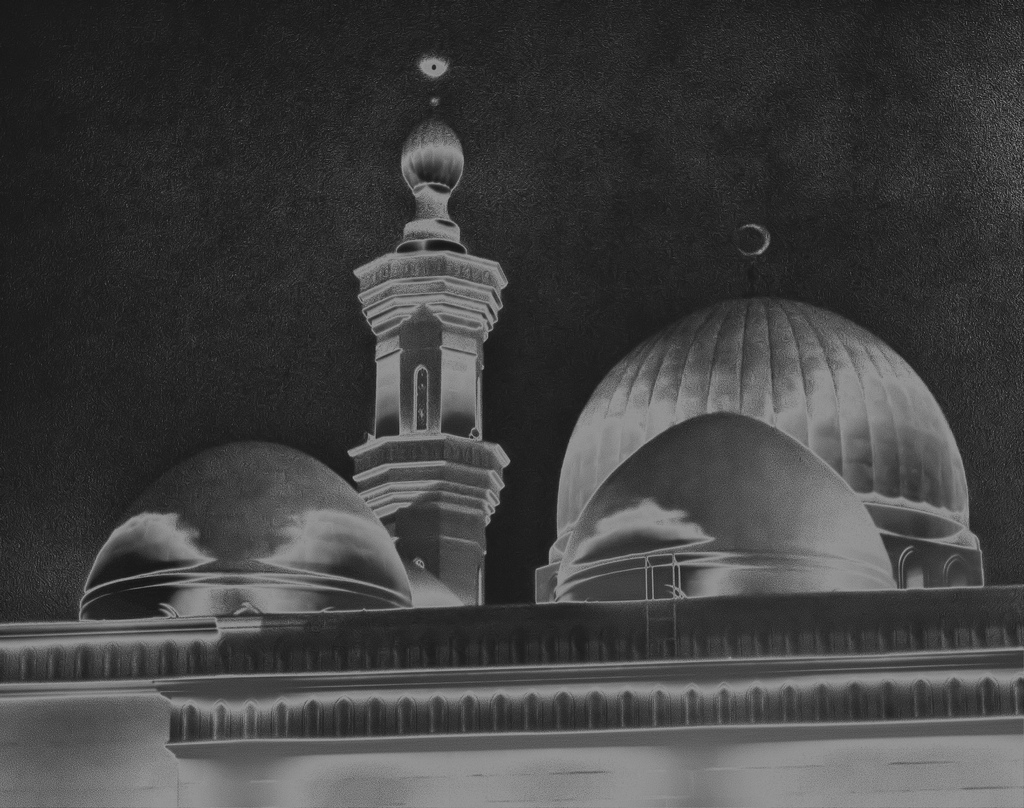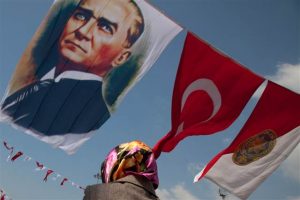
Views: 215
The focal feature of both the history and the politics of the region of the Middle East in the Modern and Contemporary Age (during the last 250 years) is the constant conflicts between different internal and external conflicts. Therefore, probably, the term “powder keg” best describes this region (the Balkans as well) for the very reason that for a long period, the Middle East was and is involved in different larger or smaller forms of conflicts, struggles, and wars. However, as in many other global cases, the roots of modern and contemporary problems are largely sown in the past, and, consequently, current political events have to be taken within a larger historical background. The autochthonous people have been all the time on the crossroads of different civilizations and political-cultural influences from abroad and, therefore, their crossroad position was the battleground for foreign invaders even from West Europe in the Middle Ages (the Crusaders).
The biggest part of the Middle East from the first half of the 16th century until the second half of the 19th century was under the domination of the Ottoman Empire. Since the second half of the 19th century West European states (France, UK, and Italy) started gradually to introduce their political, military, and economic-financial control over the region. After WWI, West European colonialists received formal protection rights in the Middle East in the form of mandates (French and British) with an increased influx of Euro-Jewish settlers in Palestine. Several new national states were created after 1918, dividing the land not respecting tribal differences or Western (British) promises made to Arabs for their support in 1916−1918 which finally resulted in unfixed problems since today.
The proclamation of an independent state of Zionist Israel on May 14th, 1948 only more fueled the political situation in the Middle East and provoked a harsh Arab reaction, leading to three major Arab-Israeli wars and several minors. This conflict is one of the longest in modern history as those two Semitic peoples – the (Muslim) Arabs and the (Zionist) Jews – are struggling for their bilateral peaceful coexistence of 60+ (or even 100 since the 1920s). Since the end of the Cold War 1.0, there were two US and Allied invasions in the region inspired by the Iraqi-Kuwait conflict which led to the First Gulf War in 1990−1991 followed by the UN sanctions. In the next century, the USA and its allies (primarily the Brits) started the Second Gulf War in 2003 by the aggression on Iraq, supposedly searching for the WMD bringing together with the invasion of Afghanistan an additional geopolitical mass in the Middle East.
In the region, there were conflicts between the states like the Iran-Iraqi War in the 1980s (anyway inspired by the US) or the conflicts (in fact, civil wars) within certain states in which, for instance, the Islamic fundamentalists or/and extremists challenged the official governments (Egypt, Syria, Algeria, Yemen, Somalia, or predictably in Iraq in the near future). The next type of conflict is those which occurred for the reason that some local organizations or groups, usually with foreign assistance, opposed the occupiers like in the Occupied Territories of the West Bank and the Gaza Strip, Kuwait, or Afghanistan. In the current stage of the regional conflicts in the Middle East, the focal hope for the regional people is that the struggle between Zionist Israel and its Muslim neighbors will be soon over by peaceful negotiations, conflict resolution, and economic development like it finally happened, for instance, with the Kingdom of Jordan and Egypt (today, Bahrein and the UAE recognized Israel too).
Nevertheless, we have to be even more concerned regarding the clash of civilizations (predicted by S. P. Huntington in 1993) in the region founded, in fact, on incompatible cultural differences. Probably, the most serious cultural clash in the Middle East is that of the Western-type of globalization and style of life that is fueled by interaction with oil-buyer external (Western) powers but which is in opposition with traditional Middle Eastern/Islamic values and life philosophy. In dealing with such questions, several focal points and facts had to be stressed as remarkable features of Arab-Islamic Middle Eastern culture:
- Muslim religion in this region historically, in principle, was showing tolerance for other faiths.
- There are many Muslims (both Arabs and not) who are supporting the faster process of democratic reforms in the region and fighting against unequal distribution of wealth within their states, especially oil states.
- The majority of the regional inhabitants do not support violent Islamic radicalism/fundamentalism and especially its call for military jihad for the sake of changing the existing political structure and promoting their worldview.
- Western civilization is extremely indebted to Arabs for their translations during the Middle Ages of crucial Hellenistic knowledge and tradition but above all in science and medicine.
- Islamic intellectuals and academicians are not, in principle, against the West but they really fear Western political power and influence in their societies, especially regarding materialism and cultural colonialism.
- Historically, a bilateral enriching coexistence between Muslims and Westerners is more the rule but not some exception.
- As a matter of fact, more than half of 1,6 billion Muslims in the world are not Arabs, most Muslims are not fundamentalists, and the majority of the Middle Eastern Muslims (including Iran and excluding Turkey) are Arabs.
- Muslims in the region of the Middle East are not dogmatically homogeneous as they are divided among themselves mainly in two focal branches: Sunni and Shia communities.
- Economic factors mainly behind their control are pushing the Middle East into the globalized marketplace.
- The contemporary Middle East is a region of substantial social, political, cultural, and economic transition.
Nevertheless, the Middle East attracted full global attention after 9/11 2001 due to the terror acts in New York and Washington committed by the regional Islamic radical organization – al-Queda when their members led by Saudi wealthy Osama bin Laden crashed three hijacked airliners into NYC WTC and Washington, D.C.’s Pentagon buildings killing over 3000 people. It is extremely important to notice that after 9/11, 56 Muslim states immediately condemned the terror act as something that is in opposition to the Islamic values, teachings, way of life, and Qur’an. However, this terror act generated an American global war against (Islamic) terrorism, accompanied by Western invasions, occupations, and mass-killings of the civilians in Afghanistan and Iraq which in many eyes of the Muslims is seen as a modern type of anti-Islamic crusades.
The question is what might prompt Middle Eastern individuals, especially youngsters, to commit any type of terror act? Surely, behind such act is a deeper process of radicalization of the Arab Islamic youth by Islamic fundamentalists and extremists but on the other hand, there are many members of the younger Arab generation, including Arabs who studied in the West, who has a sense of being oppressed and humiliated by Westerners or just intentionally provoked by, for instance, French satirical magazine Charlie Hebdo. Some of these (disillusioned?) youngsters are recruited into militant and terrorist (patriotic?) networks.
Ex-University Professor
Research Fellow at Centre for Geostrategic Studies
Belgrade, Serbia
www.geostrategy.rs
sotirovic1967@gmail.com
© Vladislav B. Sotirovic 2023
Personal disclaimer: The author writes for this publication in a private capacity which is unrepresentative of anyone or any organization except for his own personal views. Nothing written by the author should ever be conflated with the editorial views or official positions of any other media outlet or institution.
Origins of images: Facebook, Twitter (X), Wikimedia, Wikipedia, Flickr, Google, Imageinjection, Public Domain & Pinterest.
Read our Disclaimer/Legal Statement!
Donate to Support Us
We would like to ask you to consider a small donation to help our team keep working. We accept no advertising and rely only on you, our readers, to keep us digging the truth on history, global politics, and international relations.
FOLLOW US ON OUR SOCIAL PLATFORMS











